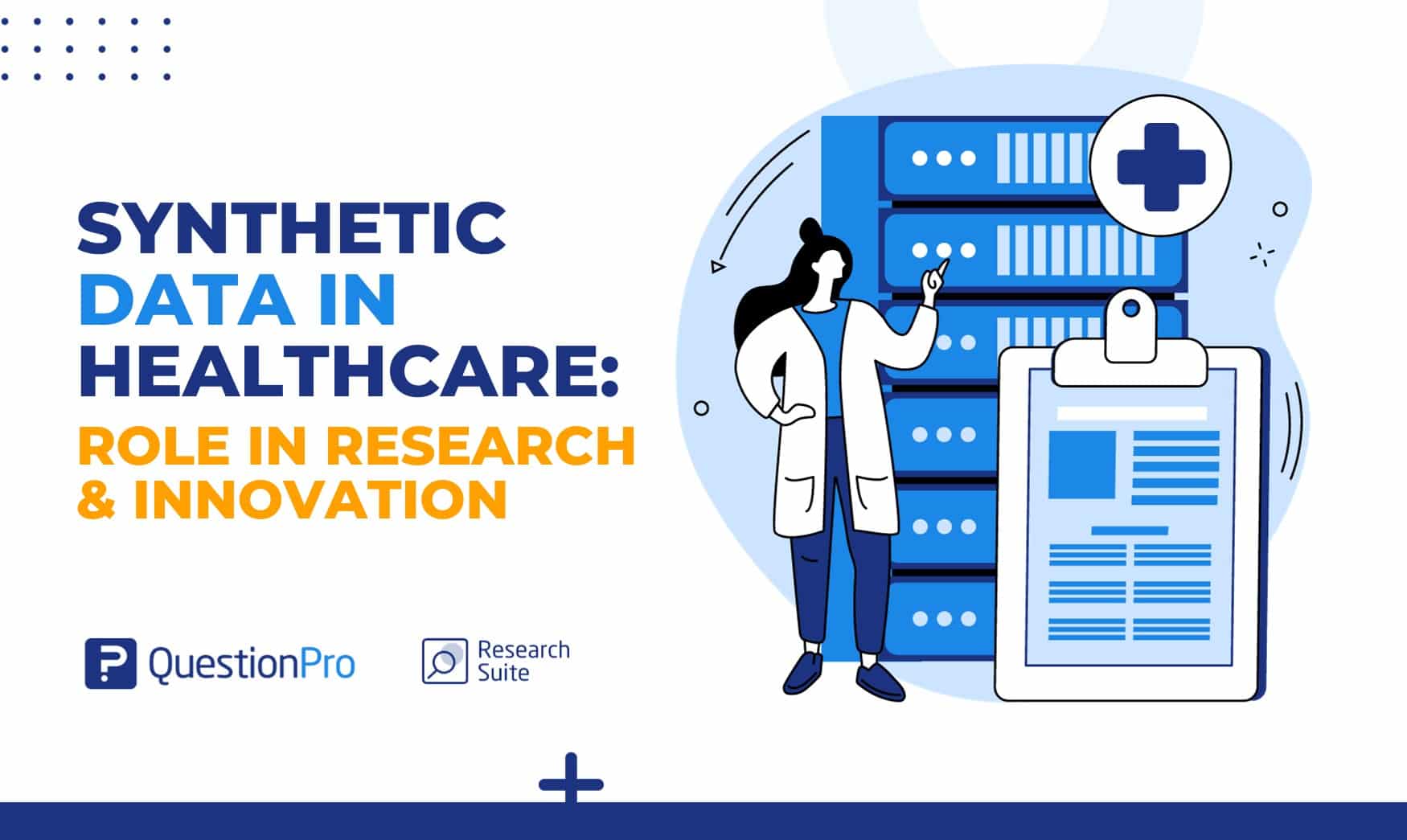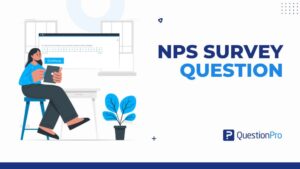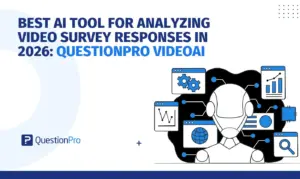
In the healthcare landscape, accessing patient information is crucial for research, innovation, and enhancing patient outcomes. However, strict privacy regulations and ethical concerns make it challenging to use real medical data. Synthetic data can be the solution to the problem.
Synthetic data in healthcare refers to artificially generated data that mimics the structure and patterns of real patient information without exposing any actual personal details.
Synthetic data has the potential to be a significant tool in this sector because it allows the presentation of real patient health information while preserving privacy and confidentiality.
In this blog, we’ll learn about synthetic data in healthcare, the techniques used to generate this type of fake data, and its diverse usage for research and innovation.
What is Synthetic Data in Healthcare?
Synthetic data in healthcare refers to artificially generated data that replicates many characteristics of accurate patient health information without containing any actual patient-specific details.
Instead of using actual details about specific patients, you can use synthetic data that looks like the real stuff. You can use this to keep patient information private and safe. It helps researchers and doctors learn and test things without using actual patient data.
Synthetic data has the potential to be a significant tool in this sector because it allows the presentation of real patient health information while preserving privacy and confidentiality.
The Role of Synthetic Data in Healthcare
Synthetic data is key in modern healthcare as a safe and ethical way to work with sensitive patient information. Instead of using real patient records, which come with strict regulations, researchers can use synthetic data that mimics the structure and characteristics of actual health records.
Here’s how synthetic data supports healthcare research and innovation while keeping privacy:
- Protects patient privacy: Researchers can use data that looks like real patient records without revealing personal information.
- Meets regulatory requirements: Institutions can meet privacy laws and regulations like HIPAA or GDPR.
- Secure research: Researchers can work with realistic data while maintaining high data security standards.
- Drives medical innovation: Safe testing and development of new treatments, models, and hypotheses.
Example Use Case
A research team is working on a new treatment for a rare disease. To do their study, they need access to detailed patient information like medical histories, lab results, and treatment outcomes. But using real patient data raises significant privacy and legal issues.
To get around this, they can generate synthetic patient profiles that match real data on demographics, diagnoses, and treatment paths without any personally identifiable information. They can then do meaningful analysis and develop new treatments while fully protecting patient privacy.
Synthetic Data Generation in Healthcare
In healthcare, generating synthetic data provides a new approach to handling sensitive data while prioritizing privacy and security. Let’s look at the ways to generate synthetic data, as well as data sources and the delicate balance between realism and confidentiality.
1. Algorithms and Techniques
The generation of synthetic healthcare data relies heavily on advanced algorithms and statistical techniques. You’ll find that these algorithms are specifically designed to replicate the patterns, distributions, and relationships discovered in real patient data. Several methods are commonly used:
- Statistical Sampling: In this method, you can draw samples from an existing dataset and then apply statistical techniques to create synthetic data that mirrors the characteristics of the original data.
- Generative Models: Machine learning models, such as Generative Adversarial Networks (GANs) and Variational Autoencoders (VAEs), have become prominent in creating synthetic data. GANs, for instance, consist of a generator and a discriminator that compete to produce exceptionally realistic synthetic data.
- Differential Privacy: This technique involves adding a layer of noise to real data when creating synthetic data. It’s a way to ensure privacy preservation, making it nearly impossible to identify any specific individual’s data within the synthetic dataset.
- Synthetic Data Generators: Synthetic data generators are specialized software and solutions that automatically generate synthetic healthcare datasets. These generators employ strategies, including those mentioned above, to generate data that meets specific privacy and statistical criteria.
2. Data Sources for Synthesis
Your success depends on the quality and diversity of the data sources you utilize to generate synthetic data for use in healthcare. Think about the following common data sources for synthesis:
- EHRs (Electronic Health Records): EHRs are synthetic data vaults storing complete medical histories, diagnosis, and treatment records. They provide a solid foundation for your synthetic datasets by serving as a major source for developing synthetic healthcare data.
- Medical Imaging Data: When building and testing image analysis algorithms, synthetic data for medical pictures such as X-rays, MRIs, and CT scans can be generated. This type of synthetic data is important for guaranteeing the quality and robustness of your medical imaging algorithms.
- Clinical Trials Data: You can use clinical trial data to test new therapies and interventions. These trials involve controlled tests with patient volunteers and can provide useful information for developing synthetic datasets customized to specific research objectives.
- Health Surveys and Public Health Data: You can take a look at population-level health surveys and public health data sources to increase the diversity and relevancy of your synthetic healthcare data. These databases provide useful information regarding overall health trends and demographics.
3. Balancing Realism and Privacy
Balancing realism and privacy is a critical challenge in developing synthetic data in healthcare. When working with synthetic health data, you must find a difficult balance between producing data that closely matches real patient data for relevant research and innovation and protecting individual privacy. Consider the following to achieve this balance:
- Noise Addition: You can add controlled levels of noise to the data. This noise makes it more difficult to re-identify individuals while keeping the data useful for study and analysis.
- Data Aggregation: A different strategy is to combine data at a higher level, such as a regional or institutional level. As a result, there is a lower chance of patient re-identification because the data is less specific.
- Evaluating Utility: It is essential to evaluate the utility of synthetic data regularly. This review guarantees that the data stays useful for research while protecting individual privacy. These factors must be balanced for synthetic data to be used ethically and effectively in healthcare research.
Use of Synthetic Data in Healthcare Industries
In healthcare, synthetic data has a wide range of uses, each fulfilling a distinct purpose. Here are some healthcare applications where synthetic data is making a difference:
01. Research and Development
You can use synthetic datasets to explore medical conditions, treatment outcomes, and patient demographics while maintaining strict data privacy standards.
Suppose you’re studying the effect of a new treatment. In that case, synthetic data allows you to simulate patient responses and refine your research design before committing to expensive or sensitive clinical trials.
02. Algorithm Training and Validation
In areas like disease prediction or medical image analysis, algorithms require large, diverse datasets. Synthetic data is a secure training environment for these models.
For example, if you’re developing an AI model in radiology, you can generate synthetic medical imaging cases to expand your dataset and validate your model before applying it to actual patient data. Data collected through QuestionPro surveys, like symptom reports or treatment histories, can feed into these synthetic models to improve learning outcomes.
03. Medical Education and Training
Educators and trainers can use synthetic patient records to simulate diagnostic scenarios and improve clinical skills without exposing real patients.
For example, students can use virtual patient cases derived from synthetic survey data to practice diagnosis, treatment planning, and decision making.
QuestionPro enables medical educators to build interactive training surveys or assessments based on these scenarios.
04. Collaboration and Data Sharing
Data sharing between healthcare organizations is often hindered by privacy concerns. Synthetic data makes it easier to collaborate across institutions without violating regulations.
With QuestionPro, multiple research groups can design surveys, aggregate anonymized data, and create shared synthetic datasets for joint R&D efforts like drug development or epidemiological modeling.
05. Epidemiological and Public Health Research
Synthetic data allows you to model disease spread, vaccination impact, and healthcare resource needs, all while preserving privacy.
For example, using aggregated public health survey data collected through QuestionPro, you can generate synthetic datasets to simulate different outbreak scenarios and assess intervention strategies.
06. Algorithm, Hypothesis, and Methods Testing
When testing new research methodologies or diagnostic algorithms, synthetic data is a risk-free environment. You’re testing a new cancer detection algorithm. Instead of using real patient data, you can use synthetic patient records from surveys.
QuestionPro’s logic and branching capabilities can simulate complex data inputs and generate structured responses.
Advantages of Using Synthetic Health Data
The advantages of using synthetic data in healthcare are significant, and they cover several areas of data-driven healthcare research, development, and practice. Here are the main benefits:
- Privacy Protection: One of the most critical advantages of synthetic data in healthcare is its capacity to protect patient privacy. You can protect patient information by using synthetic data. It allows you to work with data that appears to be patient data but does not reveal personal information.
- Compliance with Regulations: The healthcare industry is extensively regulated, and these regulations require strict compliance with data protection and privacy requirements. Synthetic data helps you comply with these standards by eliminating the use of genuine patient data. It lowers the chance of legal and ethical violations.
- Research and Innovation: Synthetic data provides a secure healthcare research and development environment. You can perform tests, test theories, and develop new treatments and technologies without the ethical considerations that come with real patient data.
- Data Diversity and Balance: Real-world patient data can be biased or insufficient. You can use synthetic data to overcome bias issues and represent distinct patient populations.
- Risk Reduction: Synthetic data reduces the risks of using genuine patient data, such as data breaches, patient identity theft, and legal consequences. This risk reduction improves the safety and responsibility of healthcare data usage.
Challenges and Limitations
While synthetic data offers many advantages for healthcare research, it’s not without its challenges. Let’s look at some of the challenges and limitations of using synthetic data in healthcare:
- Realism and Accuracy: Synthetic data needs to look like real-world healthcare data to be useful. But it can oversimplify the complexity of real clinical cases and break certain algorithms or research conclusions.
- Bias in the Source Data: Synthetic data is only as good as the original data it’s based on. If your source survey data or patient inputs are biased or unrepresentative, those same issues will be amplified in the synthetic dataset. QuestionPro helps with thoughtful questionnaire design and inclusive sampling to mitigate this risk.
- Ethical Use of Synthetic Data: While synthetic data protects individual privacy, it doesn’t eliminate the need for ethical oversight. You should ensure that synthetic datasets, especially when used for algorithm training or public reporting, follow ethical research standards and aren’t misused.
- Validation and Real-World Generalization: Research findings or models based on synthetic data need to be tested and validated against real-world outcomes. QuestionPro helps researchers collect real survey data to cross-check and refine models developed from synthetic datasets.
- Limitations in Data Representativeness: If the data used to create synthetic versions doesn’t capture a wide range of patient demographics or health scenarios, the resulting data won’t support broader healthcare use cases. Diverse and inclusive survey data collected via QuestionPro can improve source data quality and synthetic output.
- Lack of Historical Depth: Some healthcare studies require longitudinal data or insights from past records. Synthetic data typically lacks the historical richness needed for that. QuestionPro can support longitudinal surveys and trend analysis to help bridge that gap over time.
Synthetic Data in Clinical Trials
Synthetic data provides a solution by allowing you to design clinical trials without the need for actual patient data. It assures the protection of patient privacy while allowing you to complete your tasks. It enables you to simulate patient groups, which helps you to identify the optimal trial size to generate meaningful results. This method of planning trials is strategic and cost-effective.
Synthetic data enables you to test concepts and procedures without involving actual patients in the trial preparation process, including question formulation and data collection strategies. This safeguards the efficiency of your trial when you transition to real-world implementation.
Furthermore, synthetic data is a useful instrument for training purposes. You and your team can engage in practice sessions without the risks of using actual patient information. It encourages collaboration amongst researchers, facilitating mutual learning and knowledge sharing while alleviating privacy regulations-related concerns.
Conclusion
Synthetic data in healthcare is a crucial invention that addresses the complicated challenges of balancing data-driven advancements with patient privacy and data security. Its importance cannot be emphasized, as it provides a safe and ethical framework for healthcare research.
Researchers may interact across borders and institutions using synthetic data generated by AI trained on realistic data. It is one of the most adaptable tools with many use cases and a proven track record.
Synthetic data accelerates healthcare research and innovation by enabling quick algorithm training, eliminating bias, and encouraging cross-institutional collaboration. It links the increased demand for data-driven healthcare solutions and the need to protect patient privacy.
QuestionPro is a versatile survey and data collection platform that can be used to generate and refine synthetic data in healthcare. Its versatility, customization, data security, and analytical capabilities help researchers, healthcare providers, and organizations use synthetic data while protecting data.
Frequently Asked Questions (FAQs)
Answer: Because real patient data is hard to get due to privacy regulations, synthetic data allows researchers to simulate realistic healthcare scenarios without compromising confidentiality.
Answer: Unlike anonymized data, which is still from real patients, synthetic data is completely artificial and has no direct or indirect identifiers, reducing the risk of re-identification.
Answer: Yes. Synthetic data can be used to train and test AI models like radiology image recognition or disease prediction without exposing real patient information.
Answer: Survey platforms can collect high-quality, representative health data, which is the foundation for creating reliable synthetic datasets, especially through structured inputs, logic, and branching.
Answer: Yes. Since it has no personally identifiable information, synthetic data can be shared more freely across hospitals, universities, or research centers for joint projects or innovation pilots.
Answer: If synthetic data isn’t validated properly, it might oversimplify clinical realities or inherit bias from the source data and lead to inaccurate conclusions or poorly trained algorithms.







